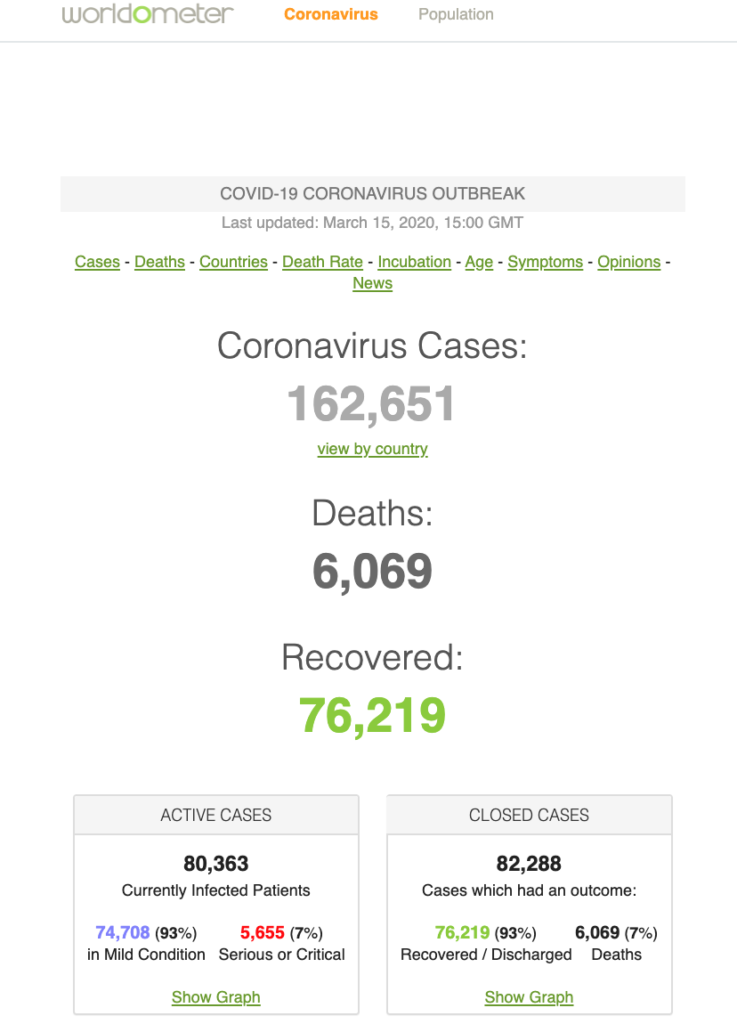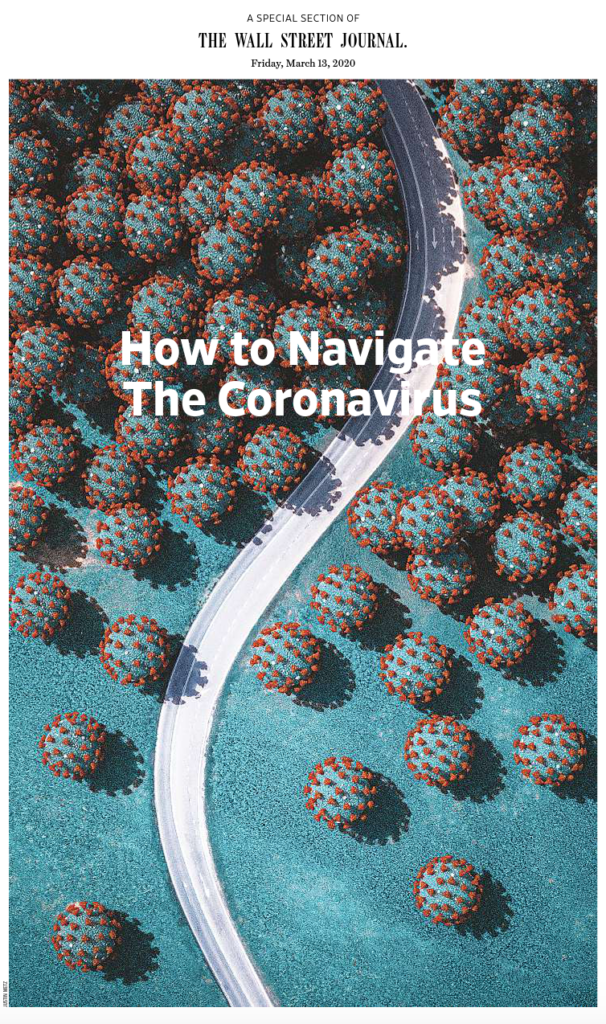One of my biggest OCD habits has always been a tendency to over-research things. In 2005-06, when some “experts” predicted an H5N1 bird flu pandemic that would kill as many or more people as Spanish Flu in 1918-19, I googled “bird flu” multiple times a day and would go five pages deep per search. You can find some terrifying shit in a search like that.
That period and the one we’re now living through has brought three things into focus for me:
- No matter how experienced the scientist or medical professional, predictions are a roll of the dice. One expert you see on the news a lot lately is Michael Osterholm. He’s painting a bleak picture now and painted an even bleaker one during that bird flu cycle. Things didn’t turn out as he predicted.
- Deep Googling will drive you mad. I love data. My profession requires that I sift through and make sense of a lot of it. But when you dive deep out of fear, looking for numbers and analysis that suggest everything will be fine, you will almost always be disappointed because of reason 1.
- Getting news from social media will drive you even madder. Every article you find comes with all manner of opinions and predictions from your friends and family, most of whom have no medical expertise. They might know someone who is, and they think that magically makes them an expert.
As I’ve learned to manage my own depression, anxiety and OCD, I’ve refined my armchair research habits. These are not cure-alls by any means, but these are what I’m doing.
Avoiding the Google search barrel roll
Instead of typing in “COVID-19” in the news search and scrolling several pages of results, I’ve limited my search to finding specific data points that paint the current picture without the emotion of news commentary.
Using dashboards FTW
I bookmarked the best examples early on and now I just check those sites once or twice a day. I get a lot more information and have to do much less scrolling, and I get a calmer picture every time. The dashboards that are particularly helpful include the World-O-Meter Coronavirus page I mentioned in the last post and this excellent piece of work from a high school student.

Staying current with the CDC
The Centers for Disease Control website has a good FAQ section on COVID-19 — actionable guidance that focuses on what you can do in the here and now and not what might happen a week or a month from now.
Filtering social media
I could tell you to stay away from Facebook, Twitter, and the like, but that would make me a hypocrite. I’m on Facebook all the time. Yet I have learned to look at shared articles with more scrutiny. If it’s an article from Vice, Rolling Stone or Mother Jones, I’m less inclined to click the links; often their titles are laced with scaremongering and political bias from the left or right. If it’s from NPR or the BBC, I’m more inclined to go in and read or listen.
I’ve also gotten a good sense of who among my Facebook friends will react to news with cooler heads and who filter the news through political bias, overreact and or be too dismissive. I’m starting to conclude that it’s pointless to engage the latter camp in a reasoned discussion. Splitting hairs over whether COVID-19 is more deadly than the flu is worse than useless and you won’t change minds. The same when it comes to whether the Trump Administration has done a good or poor job managing the crisis. You won’t change emotionally charged, politically charged opinions. My mental health has been better since I decided to stop trying to do so. (I do go in and poke a little fun at these friends from time to time. Humor helps when the recipient takes it in the right spirit. Most do.)
Reading the big papers
In the past, I’ve been skeptical of the political biases within the big daily papers (the New York Times, Wall Street Journal, Financial Times, Washington Post). But I must say that when it comes to COVID-19 reporting, all have done valuable service and are worth visiting once or twice a day.
The New York Times in particular has done a good job keeping the news simple and visual. Yes, I love these visuals. The Wall Street Journal has done a good job as well, especially with its special insert on managing the business fallout. Both have kept live updates concise as well. Even CNN has done that part well.

Parting thoughts
In this crisis, I’m heartened by a lot of the good things I see. I’ve been on two grocery runs this week where the stores were packed and shelves were empty. But I haven’t seen the fistfights and shouting matches others have reported. I’ve come across a lot of friendly folks who understand the absurdity of it all and are being friendly and helpful to each other.
I’m seeing a lot of businesses adapting almost seamlessly to all the closings and quarantines. The Canlis Restaurant in Seattle shut its dining room but switched gears to food delivery. My own company now has employees working from home until further notice, and we’ve switched a lot of our events from in-person to virtual with little hassle.
We are adapting. We are being good to each other. And that leaves me with hope that we may yet get through this in better shape than where we started.
